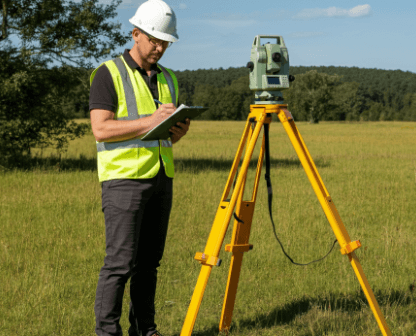Getting a land appraisal is a vital step in determining the true value of your property, and the process can seem overwhelming without the right guidance. Accurate appraisals establish transparency and ensure fair decision-making, with land valuation being a standard requirement in many real estate transactions. For the best tips for getting a land appraisal, turn to experts like Steve Daria and Joleigh. Known as seasoned real estate investors and trusted land buyers for cash, they’ve helped many property owners streamline the appraisal process while achieving accurate results. Whether you’re preparing your property for inspection or selecting a qualified appraiser, knowing what to expect can save you time and stress. Don’t leave your property’s value to chance. Explore actionable tips for getting a land appraisal by booking a free discussion with Steve and Joleigh today!
Key Points
- Choose a Qualified Appraiser: Always work with a licensed or certified appraiser experienced in the type of land you own. Their expertise ensures an accurate valuation based on current market conditions and property specifics.
- Prepare Your Property for Inspection: Ensure your land is presentable by clearing debris, providing access to key areas, and sharing relevant documents like surveys or soil tests. A well-prepared property can support a more favorable appraisal outcome.
- Understand the Appraisal Process: Familiarize yourself with the steps, from property inspection to market analysis. Understanding what to expect allows you to address any unique features of your land that could impact its value.
- Provide Relevant Information to the Appraiser: Share details about improvements, zoning changes, or unique features of your property. This additional information helps the appraiser build a more comprehensive and accurate valuation report.
- Review the Appraisal Report Thoroughly: Once you receive the report, check for accuracy and ensure it aligns with your understanding of your land’s value. Discuss discrepancies with the appraiser for clarity if you have questions or see discrepancies.
What is a land appraisal, and why is it important?
A land appraisal is a professional assessment of your property’s market value. It considers factors like location, size, zoning, and current market conditions.
It helps determine the true worth of your land, which is essential in many situations, such as selling, refinancing, or settling legal matters.
Accurate appraisals ensure you’re not undervaluing or overvaluing your property, saving you time and money.

One of the key tips for getting a land appraisal is to hire a licensed and experienced appraiser, as their expertise ensures the valuation reflects the property’s unique qualities.
Land appraisals are also important because they provide transparency and help build trust in transactions, especially when negotiating with buyers or lenders.
For instance, an appraisal helps justify your asking price if you want to sell your land.
If you’re considering refinancing, the appraisal informs lenders of the property’s value, which affects loan approval.
Another critical tip for getting a land appraisal is to prepare your property beforehand by clearing clutter and providing relevant documents like land surveys or deed information.
A professional land appraisal provides the insight and clarity you need to make confident, sound choices about your property.
Get Started: Get Your Cash Offer Below…
We are direct land buyers. There are no commissions or fees and no obligation whatsoever. Start below by sharing where your property is and where we can send your offer…
When should I consider getting a land appraisal?
You should consider getting a land appraisal whenever you need a clear understanding of your property’s value.
An accurate appraisal ensures a fair, competitive price when selling your land.
Land appraisals play a crucial role in the land-buying process, helping to ensure you pay a fair price that reflects the property’s true value.
Another common reason to get a land appraisal is when you’re applying for a loan or refinancing, as lenders often require an appraisal to determine how much they are willing to lend.
One of the best tips for getting a land appraisal is hiring a qualified and experienced appraiser familiar with your local market.
A land appraisal may also be necessary in legal situations, such as settling an estate or dividing property during a divorce, to ensure a fair and equitable distribution for all parties involved.
If you’re planning any major changes to your land, like developing it or changing its zoning, an appraisal helps you understand its current value and potential return on investment.
Another useful tip for getting a land appraisal is to prepare by gathering key documents, like surveys or property records, to help the appraiser make an accurate assessment.
Whether you’re making decisions related to selling, buying, or managing your land, a professional land appraisal is a valuable step to guide you in the right direction.
What factors affect the value of my land during an appraisal?
- Location: Land value is heavily influenced by its location. Being close to schools, businesses, public transportation, or natural attractions like lakes and mountains can significantly enhance its worth.
- Size and Shape: Larger parcels of land generally have more value, but the shape of the land also plays a role. For example, irregularly shaped lots or land with limited access may be less desirable and, therefore, worth less.
- Zoning and Usage: The zoning of your land affects how it can be used, which impacts its value. Land zoned for residential, commercial, or agricultural purposes will attract different buyers and have different values depending on demand.
- Utilities and Infrastructure: Land that already has access to utilities like water, electricity, and sewage tends to be more valuable. Accessibility to roads or a well-maintained infrastructure can also significantly raise the appraisal value.
- Market Conditions: Current market trends, like demand for land in your area, can either boost or lower its value. An active real estate market typically results in higher appraisals, while a slow market may reduce land prices.

How do I find a reliable and qualified appraiser?
Finding a reliable and qualified appraiser is important when you need a land appraisal.
One of the best tips for getting a land appraisal is to check whether the appraiser is licensed or certified in your state.
A licensed appraiser has the training and credentials required to provide accurate and professional assessments.
You can also look for appraisers with experience in valuing land specifically, as this is different from appraising buildings or homes.
Another tip is to ask for recommendations from trusted people, such as real estate agents, lenders, or friends who have used appraisal services before.
It’s also a good idea to review the appraiser’s credentials and look for memberships in professional organizations like the Appraisal Institute, which indicate a commitment to high standards.
Take the time to read reviews or testimonials to get an idea of their reputation and customer service.
You should also inquire whether the appraiser knows your local area, as understanding market conditions and comparable properties nearby is key to getting a reliable valuation.
Finally, make sure to discuss your needs clearly with the appraiser before hiring them.
A trustworthy appraiser will be willing to explain the process and answer any questions you may have.
How long does the land appraisal process take?
- Setting Up the Appointment: The first step is to book an appointment with the appraiser, which, depending on their schedule, usually takes a few days. One of the best tips for getting a land appraisal is to contact the appraiser early to avoid any delays.
- Property Inspection: During the site visit, the appraiser evaluates the land’s size, shape, accessibility, and any unique features. This step generally takes a few hours, but the preparation beforehand can make the process smoother.
- Research Work: The appraiser studies local market trends, zoning details, and recent sales of similar properties. Depending on how detailed the research needs to be, this could take one to several days.
- Creating the Appraisal Report: After gathering all the necessary information, the appraiser compiles a detailed report about the land’s value. One practical tip for getting a land appraisal is to provide essential documents upfront, as this can speed up this critical step.
- Finalizing and Delivering the Report: The entire process typically spans one to two weeks from beginning to end. If you’re working on a deadline, clearly communicate your needs as one of the tips for completing a land appraisal on time.
What steps should I take after receiving the appraisal report?
The first step after receiving the appraisal report is to review it and ensure you understand the information carefully.
Take note of the appraised value and the factors that influence it, such as location, market trends, and specific property features.
If you have any questions or spot discrepancies, don’t hesitate to contact the appraiser for clarification.
Next, decide what actions to take based on the appraisal. For instance, the report can help you set a fair asking price if you’re selling the land.
If the value is lower than expected, consider improvements or adjustments to increase the property’s appeal.
One of the best tips for getting a land appraisal is to keep an open line of communication with experts who can guide you in making informed decisions.
Contacting seasoned real estate professionals like Steve Daria and Joleigh is a smart move for those looking to sell quickly and avoid lengthy processes.
They are experienced land buyers who can provide cash offers based on the value of your property.
Whether you’re selling or want advice, their expertise can help you confidently move forward.
Reach out to Steve Daria and Joleigh today to take the next step and maximize the value of your land.
**NOTICE: Please note that the content presented in this post is intended solely for informational and educational purposes. It should not be construed as legal or financial advice or relied upon as a replacement for consultation with a qualified attorney or CPA. For specific guidance on legal or financial matters, readers are encouraged to seek professional assistance from an attorney, CPA, or other appropriate professional regarding the subject matter.
